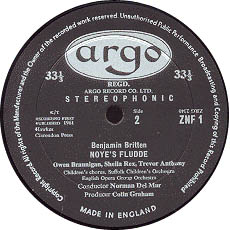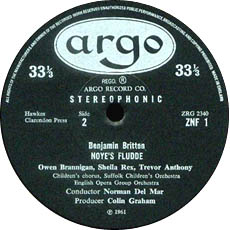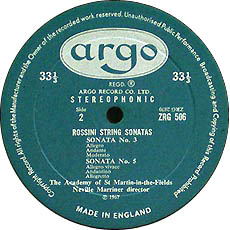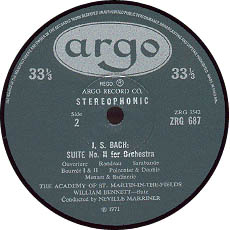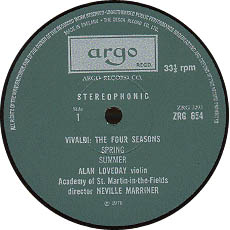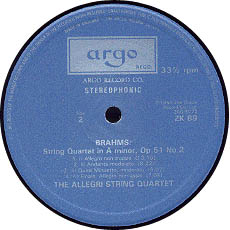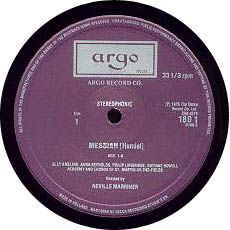Argo Records was founded in 1951 by Harley Usill (born c1925-died 1991), with £500 capital, as a company primarily specialising in spoken word recordings and other esoteric material. The first issue was Music from Bali, dedicated to the Indonesian Gamelan, recorded at the Winter Garden Theatre, London. The catalogue would eventually run to 1,000 items.
In 1953, Usill was introduced to the Indian music specialist Deban Bhattacharya, who would be responsible for field recordings of traditional music in India. Bhattacharya had been frustrated by the absence of recordings he could use for his BBC Radio broadcasts. Around the same time Walter Harris recorded an amateur Brazilian choir in Rio de Janeiro. Such recordings as these appeared in the labels “Living Traditions” series.
Taking advantage of the capacity of the longer playing time of LP records Argo embarked on recording the complete works of William Shakespeare. Cambridge University’s Marlowe Players participated in the series, which was the responsibility of George “Dadie” Rylands (1902-99), a fellow at King’s College. Recording began in 1957 and was completed by 1964. Initially professional actors had been reluctant to work for the project, but in time Judi Dench, Derek Jacobi and Prunella Scales participated. “The Poet Speaks” series was the work of contemporary poets read by the poets themselves, and among those featured were Ted Hughes, Sylvia Plath and Anthony Thwaite.
In 1954, the company recorded the Festival of Lessons and Carols (Christmas) service at King’s College, Cambridge, whose acoustics had previously defeated the abilities of engineers at other compaanies. A series of the masses of Joseph Haydn, recorded at the same venue, commenced in 1960.
Cash flow problems in 1957 meant that the company only survived by being taken over by British Decca, although Usill remained in charge and the company was able to maintain autonomy from the parent company.
A series of actuality recordings of steam locomotives (then in the early stages of being phased out in the UK) was masterminded by the film sound recordist/mixer Peter Handford, selling up to 30-40,000 copies per year.
Later, the repertoire soon diversified in to modern British Jazz, through the poetry and jazz movement of the early 1960s. This meant that recordings by pianist Michael Garrick, were particularly well represented. The radio ballads of Ewan McColl and Peggy Seeger originally produced by BBC Radio (1957-70), were leased and issued by Argo from 1965.
The label passed to Polygram, when the conglomerate acquired British Decca in 1979. Usill left the company and went on to co-found ASV Records. Argo was finally wound up in 1988; the catalogue is now controlled by Universal.
| Argo Labels | ||||||||||||||
|
|
|
|||||||||||||
|
|
|
||||||||||||
|
|
|
|||||||||||||
|
|
|
||||||||||||
|
|
|
|
||||||||||||
|
|
|
||||||||||||

